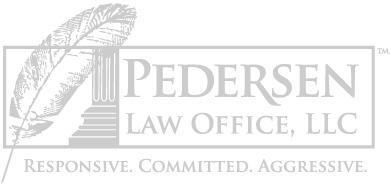Bankruptcy
Unexpected problems happen in everyone’s life and sometimes these problems come with medicals bills, credit card debts, payday loans and other financial hardships. These issues can be overwhelming and you may feel helpless. Bankruptcy was created to help individuals and families recover from these stressful problems and get a fresh start and debt relief.
Chapter 7 Bankruptcy can eliminate credit card debt, medical bills, payday loans and other unsecured debts. It also removes the stresses caused by harassing debt collection calls, past due notices, utility shutoffs, judgments, garnishments and court hearings.
Chapter 13 Bankruptcy is available for those who do not qualify for a Chapter 7 Bankruptcy or need the additional benefits not available in a Chapter 7. Those benefits include stopping a foreclosure on a home, mortgage modification, potentially eliminating a second mortgage, stopping vehicle repossessions, preventing tax levies and property seizures.
Is bankruptcy the best option for you? Give us a call. Our law firm offers free consultations in all of our areas of practice and would be more than happy to meet with you and see how we can help you. Our law office serves the communities of Appleton, Neenah, Menasha, Oshkosh, Green Bay and their surrounding areas.
Frequently Asked Questions:
What debts does a Chapter 7 or Chapter 13 bankruptcy get rid of?
The most common debts discharged in a Chapter 7 or Chapter 13 bankruptcy are:
|
|
However, many other types of debts can be discharged. Speak with your attorney about which of your debts can be discharged.
What debts does a Chapter 7 or Chapter 13 bankruptcy not get rid of?
The most common non-dischargeable debts are:
|
However, this list is not inclusive. You will need to speak with your lawyer to determine if any of your debts cannot be discharged.
What is the difference between Chapter 7 Bankruptcy and Chapter 13 Bankruptcy?
Unlike a Chapter 7 Bankruptcy, a Chapter 13 Bankruptcy allows you to get caught up on secured debts you may be behind on such as a mortgage or an auto loan. Chapter 13 Bankruptcy also allows you to do a mortgage modification to reduce your monthly mortgage payment or eliminate your second mortgage if applicable. Also, a Chapter 7 Bankruptcy takes approximately 120 days to complete, whereas a Chapter 13 Bankruptcy is a three to five year repayment plan.
How will filing bankruptcy affect my credit?
Unfortunately, there is no solid answer. It is possible that if you file bankruptcy your score will go down. However, if you take the appropriate steps to rebuild, your score will rebound faster than if the debts go unpaid and continue to increase over time.
What will happen to my home and car if I file bankruptcy?
Each individual is allowed a reasonable amount of value in their home and car and still be able to keep it in a bankruptcy. If you have a loan on your home or car you will need to continue paying on that loan to keep the property.
If you would like to get rid of the loan on the property, you can surrender the home or car and no longer be responsible for the loan.
Will I lose my retirement account or pension if I file bankruptcy?
No. All qualified retirement accounts, such as an IRA, pension, and 401(k), are 100% protected in a bankruptcy.
Can filing bankruptcy stop utility shutoff?
Yes. Filing bankruptcy will stop your utilities from being disconnected. You will have to continue to pay for your utilities after you file bankruptcy and in some cases a utility company can ask for a deposit for service after you file. Your past utility bills will be discharged in the bankruptcy. If your services have already been disconnected, you can use a bankruptcy to allow the services to immediately be turned back on.
Can filing bankruptcy stop garnishments?
Yes. The garnishment and debt collection efforts will stop as of the day that you file bankruptcy.
What does it Cost to File for Bankruptcy?
The cost of bankruptcy depends on the type of bankruptcy you file. To find out the cost and type of bankruptcy best for you, please contact our law office and speak to an attorney today!


